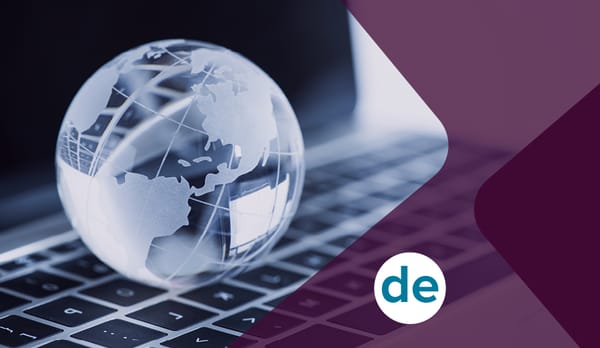Zero Draft: Permanent UN Status for IGF
On 29 August 2025, the two WSIS+20 co-facilitators published a Zero Draft. It proposes not only to extend the mandate of the IGF but also to grant the IGF permanent UN status. The Zero Draft reaffirms the multistakeholder model for Internet governance and calls for aligning the WSIS action lines with the UN Sustainable Development Goals (SDGs) as well as the Global Digital Compact (GDC). Another review conference (WSIS+30) is scheduled for 2035. Government negotiations on the Zero Draft will begin on 15 October 2025 in New York. Further stakeholder consultations are planned, including on the sidelines of the ICANN meeting in Dublin. The WSIS+20 final document is to be adopted on 16 December 2025 at the 80th UN General Assembly (UNGA).[1]
European Parliament supports permanent IGF
In a speech before the European Parliament on 10 September 2025, EU Commissioner Hella Virkkunen advocated for a “permanent IGF”.[2] On the same day, the Parliament adopted a resolution supporting this demand: “The internet must be and must remain open, free, global, interoperable, reliable, secure and governed for all by all” and “We call on the UNGA to permanently renew the mandate of the IGF, and to strengthen its resources and the multistakeholder model of internet governance”.[3]
Tech CEOs call for faster digitalization in Europe
On 9 September 2025, on the eve of EU Commission President von der Leyen’s State of the Union address, 41 CEOs of European tech companies called for accelerating Europe’s digitalization. In the “European AI & Tech Declaration”, it is lamented that in the last 50 years, no European company with a current market value of over €100 billion has been founded. This must change. “Europe must adapt to faster innovation cycles, make agile investments, reduce regulatory burden and costs of failure, simplify implementation and meaningfully review our rules on AI, data and cyber. We, as industry leaders, stand ready to invest in Europe’s digital future, spearhead our security, and drive our digital and green transformation”.[4]
EU launches “Digital Omnibus” to cut red tape
On 15 September 2025, the European Commission launched its “Digital Omnibus”[5] to streamline the digital regulatory clutter it had itself created. The Digital Omnibus is intended to simplify legislation on data, cybersecurity, and artificial intelligence (AI) and to relieve companies of unnecessary bureaucratic requirements. Proposals can be submitted until 14 October 2025.
Franco-German Economic Agenda for digital sovereignty
At a Franco-German summit on 29 August 2025, President Macron and Chancellor Merz adopted a “Franco-German Economic Agenda”. The agenda also includes projects to strengthen digital sovereignty such as cloud sovereignty, digital public infrastructure, digital services, as well as joint positions to enhance European competitiveness and reduce bureaucracy. A European Digital Summit is scheduled to take place in Berlin on 18 November 2025.[6]
UNGA establishes new AI bodies
On 29 August 2025, the 79th UNGA gave final approval for the creation of two new UN bodies for AI. The “International Scientific Panel on AI” is to consist of 40 representatives elected by the UNGA and will provide an annual report on the state of global AI development. The “Global Dialogue on AI Governance” will be hosted for the first time in 2026 by the ITU in Geneva in a multistakeholder format.[7] A kick-off was held on 21 September 2025 in New York, where the President of the 80th UNGA, Annalena Baerbock, stated: “AI is powerful and fast, too fast for current rules, without inclusive oversights, standards and safeguards, we risk a world where innovation outpaces ethics. Governance must be both fast enough and fair enough to keep pace.”[8]
UNCSTD Data Governance: New chair and next steps
On 15–16 September 2025, the 3rd meeting of the UNCSTD Working Group on Data Governance (WGDG) took place in Geneva.[9] It was overshadowed by the death of the previous WGDG chair, Peter Major. Discussions focused on the responses to the questionnaire circulated after the 2nd session. Issues included the definition of data governance, embedding data governance into existing regulations and negotiations (WSIS+20, WTO, G20), and linking national data sovereignty with free cross-border data flows. The new WGDG chair, Prof. Muhammadou Kah (The Gambia), announced that a first “coherent report” would be presented at the 4th meeting in November 2025. The final report is to be submitted to the 81st UNGA in October 2026.
Negotiations on autonomous weapons intensify
The autumn round of negotiations on autonomous weapons systems (GGE LAWS) ended on 12 September 2025 in Geneva with the adoption of a so-called “Rolling Text” outlining the key elements of a possible agreement. Brazil, speaking on behalf of 41 governments, declared that the time had come to begin concrete negotiations for a treaty. The issue is also on the agenda of the 80th UN General Assembly.[10]
ITU interim report: 2.6 billion people offline
On 5 September 2025, the ITU, together with Saudi Arabia, presented an interim report on the implementation of the UN Sustainable Development Goals (SDGs) in the digital field. In the foreword, ITU Secretary-General Doreen Bogdan-Martin lamented that 2.6 billion people are still offline. More private investment in infrastructure and AI in developing countries is needed.[11]
ITU rejects Russian proposal on Internet oversight
At the 22nd meeting of the ITU CWG Internet on 16 September 2025 in Geneva, Russia’s proposal to discuss state oversight of the management of critical Internet resources was again rejected. Russia had wanted to circulate a questionnaire to all ITU members to determine what alternatives exist for the management of domain names and IP addresses.[12] However, the issue is expected to be placed on the agenda of the next ITU Plenipotentiary Conference in 2026 in Dubai.[13]
SCO “Tianjin Declaration” on cybercrime and sovereignty
At the Shanghai Cooperation Organisation (SCO) summit on 1 September 2025, the “Tianjin Declaration” was adopted, calling on all states to join the UN Convention against Cybercrime and to counteract the militarization of cyberspace. At the same time, the declaration reaffirms each state’s right to regulate the Internet and the “sovereign right of states to manage it in their national segments.”[14]
UN Human Rights Council: Privacy in the digital age
At the 60th session of the UN Human Rights Council in September 2025 in Geneva, a report by the UN High Commissioner for Human Rights on the “Right to Privacy in the Digital Age” was discussed. The report deplores numerous violations of privacy on the Internet, denounces discrimination as a consequence of data processing, and highlights new threats posed by AI. 23 recommendations to governments and non-state stakeholders are intended to help address the problems. Internet Standardization Organizations (SDOs) are advised to consider the consequences for privacy protection when developing new technologies.[15]
[1] https://publicadministration.desa.un.org/sites/default/files/2021-04/2025/WSIS%2B20_ZERO_DRAFT.pdf
[2] https://www.youtube.com/watch?v=7v0I5eAs-14
[3] https://www.europarl.europa.eu/doceo/document/TA-10-2025-0190_EN.pdf
[4] https://www.digitaleurope.org/news/european-ai-tech-declaration-39-european-ceos-stand-ready-to-invest-in-europes-competitiveness-and-security/
[5] https://digital-strategy.ec.europa.eu/en/news/commission-collects-feedback-simplify-rules-data-cybersecurity-and-artificial-intelligence-upcoming
[6] https://www.bundesregierung.de/resource/blob/2196306/2382172/c66956885b760592bbe25810ff81cb5e/2025-08-29-dt-fr-wirtschaftsagenda-data.pdf?download=1
[7] https://docs.un.org/en/A/RES/79/325
[8] https://webtv.un.org/en/asset/k1p/k1pvgowd6u
[9] https://unctad.org/system/files/information-document/cstd-wgdg-2025-09-15_chairs-summary_en.pdf
[10] https://reachingcriticalwill.org/images/documents/Disarmament-fora/ccw/2025/gge/statements/5Sept_Group.pdf
[11] https://www.itu.int/dms_pub/itu-s/opb/gen/s-gen-invest.con-2025-pdf-e.pdf
[12] https://www.itu.int/md/S25-RCLINTPOL22-C-0005/en
[13] https://www.itu.int/md/S25-RCLINTPOL22-C-0006/en
[14] http://en.kremlin.ru/supplement/6376
[15] https://docs.un.org/en/A/HRC/60/45













